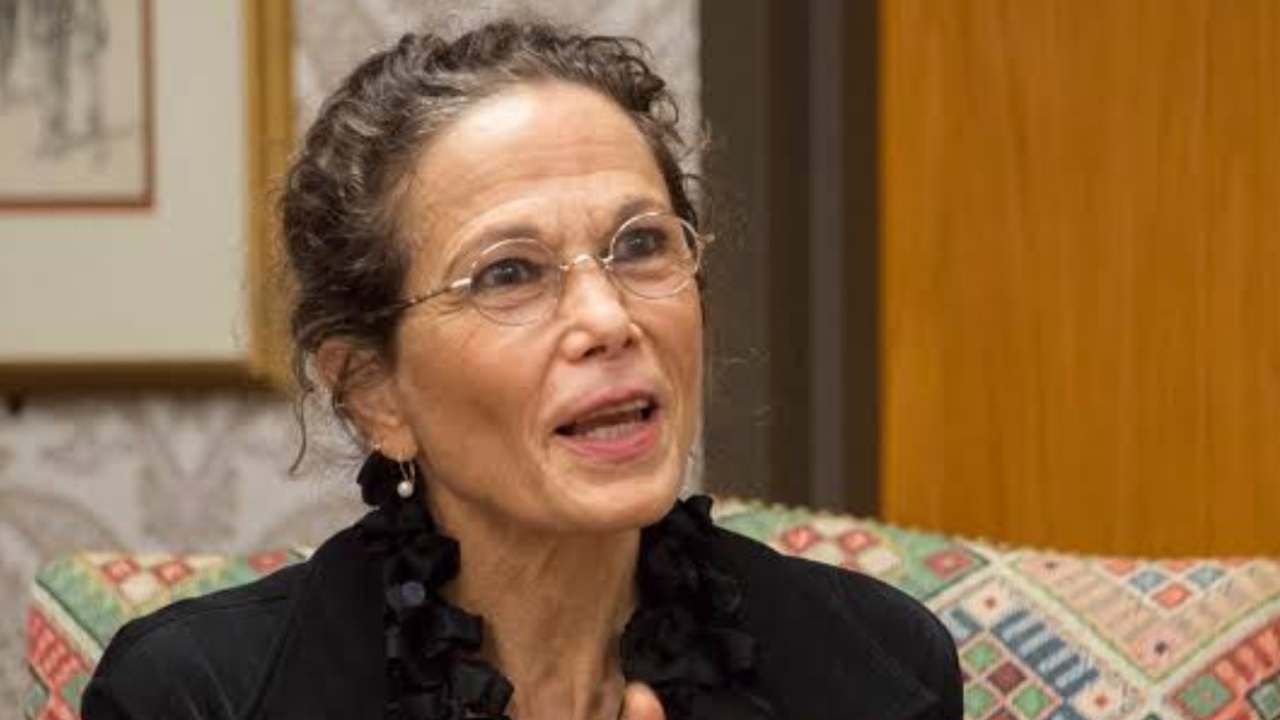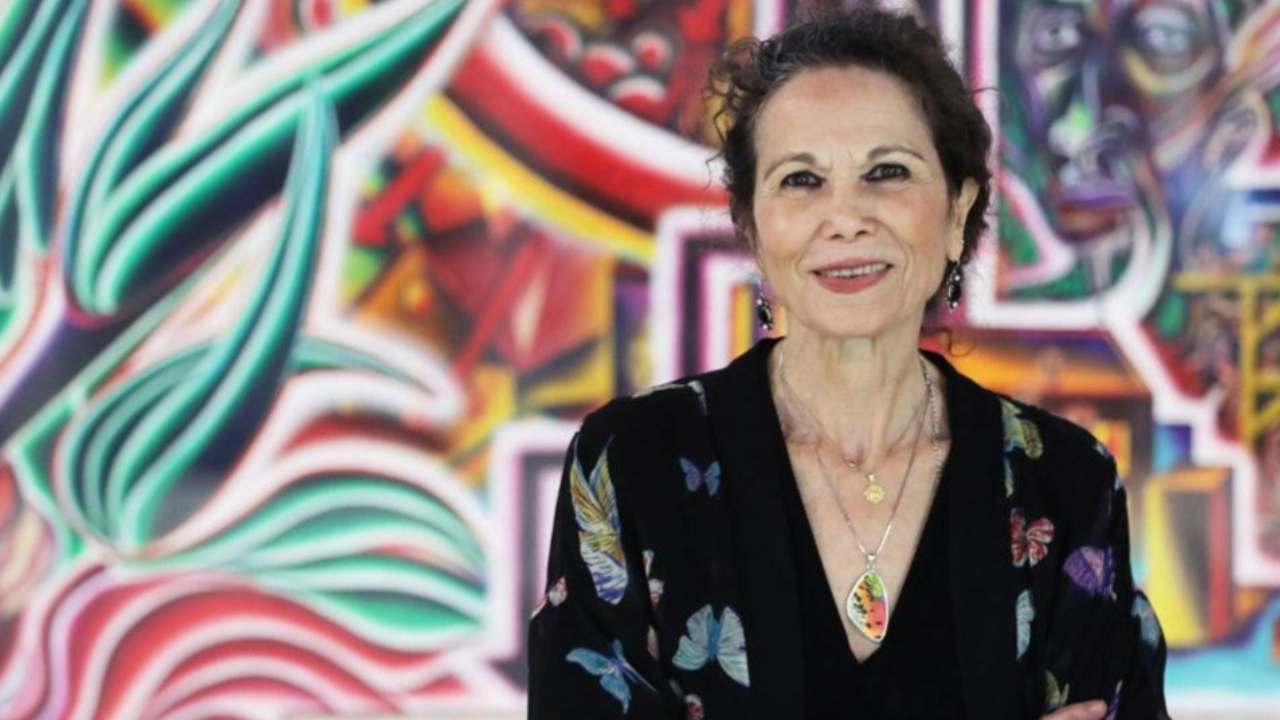Julia Alvarez, the esteemed author from Vermont, commenced work on her 23rd book, “Alma once had a friend, a writer, who…”, only to pause momentarily due to the looming threat of Covid-19.
“Being older, there’s always a sense of, ‘Will this be my last work?’” the 74-year-old self-described aspiring “elder” recalled in a recent interview.
“During the pandemic, a bright light was shone on all of us now termed ‘the vulnerable.’ Suddenly, my demographic was endangered.”
Nevertheless, the former Dominican Republic student, now a professor emerita at Middlebury College, resumed her endeavor to craft the novel.
It delves into the life of a retired woman of letters, pondering what to do with a plethora of unfinished rough drafts.
In an unexpected turn mirroring real-life drama, Alvarez faced a detached retina in one of her eyes. The Weybridge writer underwent two surgeries, yet her vision remained clouded as she grappled to press on with her work in progress.
Gradually adapting to her altered visual landscape, Alvarez persevered to complete her book, aptly titled “The Cemetery of Untold Stories.”
Scheduled for release in both English and Spanish this week, the 256-page masterpiece has garnered anticipation, earning coveted spots on prominent reading lists.
“Mystifying, compelling, and often wryly funny,” the trade publication Shelf Awareness has summed up the novel.
“Julia Alvarez delivers a lyrical, thought-provoking meditation on truth, complicated family narratives, and the question of whose stories get told.”
For Alvarez, this accomplishment embodies the essence of one of her beloved poems’ closing lines: “Practice resurrection.”

Looking For Narratives To Help Us
Alvarez’s literary journey began with a unique vision, crafting stories she couldn’t find elsewhere.
At just age 10, she fled the Dominican Republic following her father’s involvement in a failed coup against the dictator.
This tumultuous experience became the foundation for her semi-autobiographical debut novel, “How the Garcia Girls Lost Their Accents.”
“When I was sending my manuscript out, there was no such thing as multicultural books,” she recalled of her 1991 story, which is told from the perspective of a female Caribbean immigrant.
Alvarez, honored with the National Medal of Arts by President Barack Obama in 2014, has forged a prolific career spanning novels, nonfiction, and poetry, bridging cultural divides and filling literary gaps.
As an Addison County resident, Alvarez’s awareness deepened while translating for Spanish-speaking migrant farmworkers who arrived in Vermont around the millennium.
Witnessing the challenges locals and Latinos faced in understanding one another ignited her commitment to fostering cultural understanding through her work.
“Everyone was befuddled,” recalled the author, who illuminated the issue in her 2009 novel “Return to Sender.”
As Alvarez grappled with the loss of her parents and sister, a poignant question lingered in her mind: “Where Do They Go?” This query evolved into the title of Alvarez’s 2016 children’s book, exploring the emotional journey surrounding such profound losses.
“It struck me that the older you get, the less answers you have,” Alvarez explained.
“People think writers write things because they know things. I write to understand and make meaning of what I’m up against in my own life. I want to figure things out. Writing is how I find my way.”
In a recent Literary Hub roundtable discussing “Writing ‘Women of a Certain Age,'” Alvarez reflected on life’s inherent ambiguity, describing it as a state of “bardo,” existing in liminal, in-between spaces.
She likened this phase to neither being a caterpillar nor a butterfly, with uncertainty lingering about what or who will ultimately emerge, if anything at all.
“Bardo states are ripe for fictional picking,” she continued.
“That said, I confess they’re not much fun to live through! All that confusion, commotion, the abyss opening at my feet. So, it actually can be fertile writing time, as I’ll do anything to get myself out of there.”
And so, with the arrival of Covid-19 in 2020, Alvarez began her latest book.
“More and more I felt this ageism in a lot of literature, where the elders were signing their wills and dying on the first page and then the story really gets started with the young people,” she told VTDigger.
“As I grow older, I’m interested in truly complex and vital older women protagonists. As our baby boomer generation ages, I think more of us are looking for narratives to help us make meaning of this time in our lives.”
In “The Cemetery of Untold Stories,” the character Alma, much like Alvarez herself, grapples with the challenges of aging as a writer, burdened by stacks of unfinished manuscripts.
If You’re Lucky To Live Long Enough
Alvarez’s latest novel brims with profound inquiries: Whose narratives are recounted, and whose are left untold? What distinguishes reality from the fabrications of a writer’s mind?

“When you tell a true story, it already contains the elements of fiction,” the author said. “You’ve got a point of view, i.e. your own.
You’re highlighting some characters and ignoring others. And each time you tell it, it gets revised.”
For instance, Alvarez requested her sisters to recount the harrowing day they escaped their native land.
“One told the story of how a car came up and we all crawled inside and we had to push it down the driveway so the secret police wouldn’t hear it,” the author said.
The rest of the family laughed. They knew that was a scene from “The Sound of Music.”
“We saw it soon after our emigration,” the author said. “That movie captured something about how my sister felt about the terror, so it became what happened to us.”
In Alvarez’s latest novel, the protagonist chooses to bury her unfinished manuscripts in a symbolic act of closure, hoping to lay them to rest. The author found it effortless to conjure these discarded tales.
“I lifted pieces from my manuscripts that never made it to fruition,” she said.
However, just as the seemingly abandoned pages are resurrected within the novel, the thoughts and emotions they encapsulate emerge at the end in unforeseen ways.
“There’s a saying often quoted by protestors: ‘They tried to bury us — they did not know we were seeds,’” Alvarez said. “Stories never die. They wait in silence to be told.”
Describing the outcome as a “finely crafted novel,” Kirkus Reviews acknowledges Alvarez’s enduring strengths in “glowing prose and powerful narrative.”
Despite her compromised vision, Alvarez intends to curtail her upcoming book tour. However, she remains committed to supporting local independent bookstores in her home state, where she has embraced the cooler climate after her Caribbean upbringing.
“People say the two places are diametrically opposite, but the cultures and value systems of both remind me of each other,” she told this reporter in a 2012 interview.
“Vermont is a small-town state where helping your neighbor is still so important. People think I should be in Miami or the Southwest, but I can’t think of a more Dominican state than Vermont.”
Alvarez highlighted how the Vermont Institute of Natural Science expressed gratitude when she and her husband, retired ophthalmologist Bill Eichner, transformed their former 60-acre Dominican coffee farm into a sanctuary by planting shade trees.
“The Bicknell’s thrush that summers in the Green Mountains winters in those trees,” she said. “Even the little bird knows we are connected.”
As spring arrives, Alvarez’s flights of imagination now necessitate prism glasses and a more deliberate pace.
“It’s changed my life,” she said of her sight issues. “But as one doctor told me, ‘Julia, the eye is not going to get better, but you will.’”
The writer has found similar inspiration in lines from Wendell Berry’s poem “Manifesto: The Mad Farmer Liberation Front.”
She especially appreciates the poem’s conclusion: Practice resurrection.
“Those of us who live in a four-season state like Vermont know about that,” she said.
“After the blast of winter, these light-filled days come about and the robins are back and there’s little tiny snowdrops on the lawn.
As you get older, little deaths happen all the time — if you’re lucky to live long enough and survive them.”
That’s why, when you ask Alvarez if she’ll keep writing, her answer is emphatic.
“Am I breathing?” she’ll practically shout. “I might have to change how I do it, but this is not my last book, or so I hope. I’m not yet ready to join my characters in the cemetery of untold stories.”


